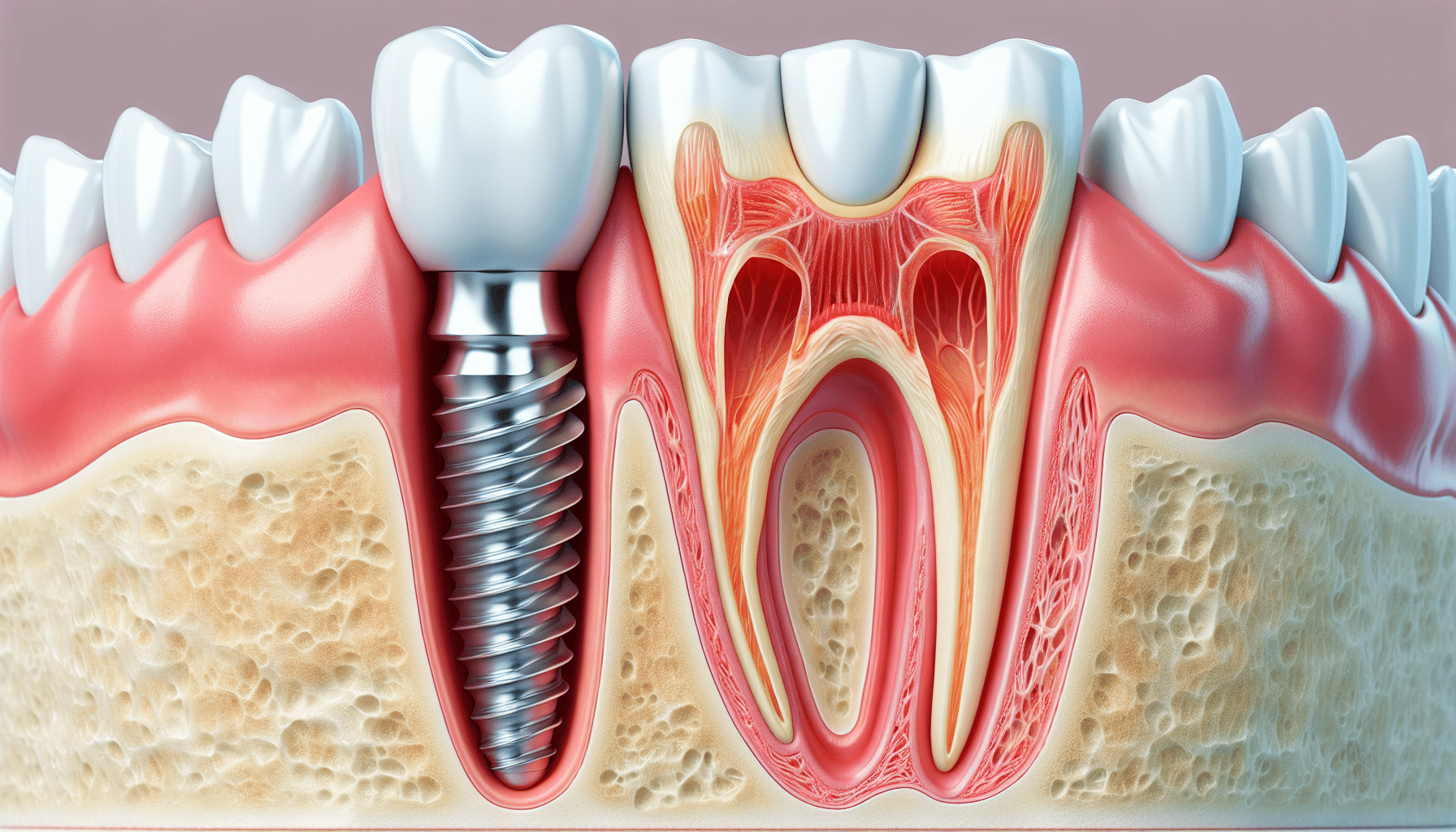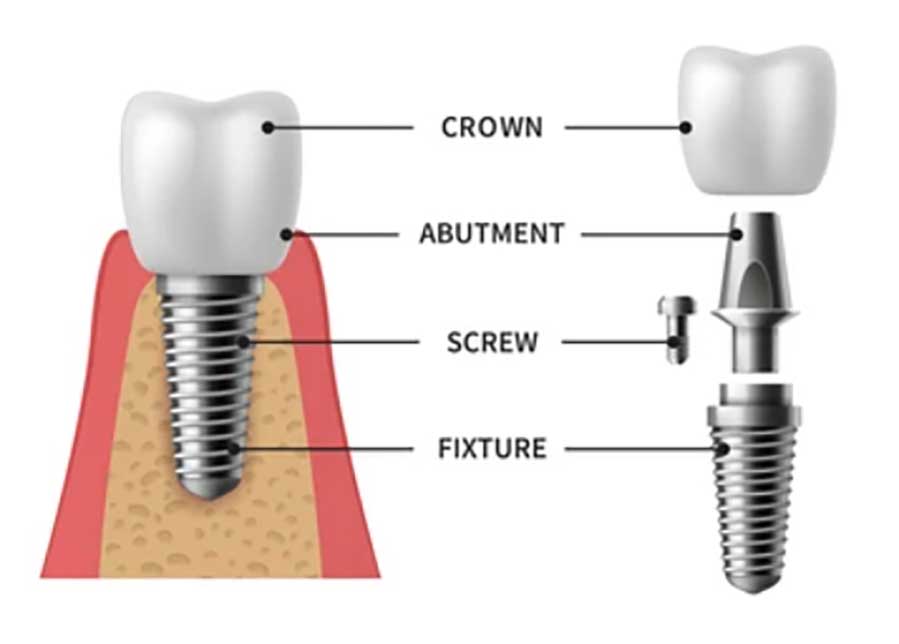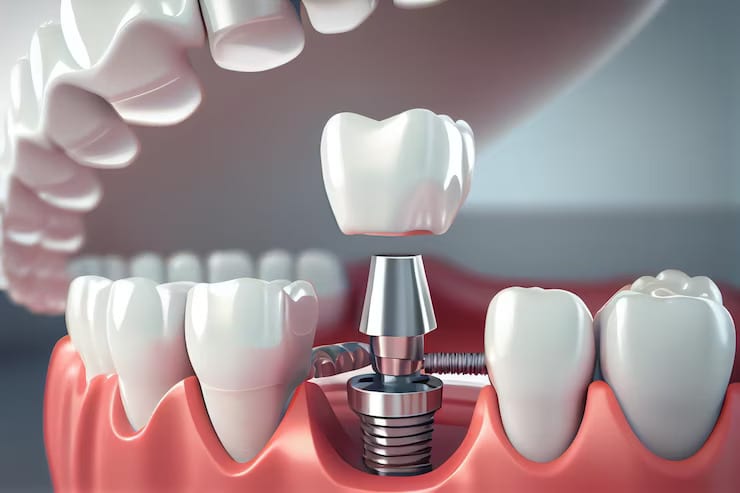Dental Center Pataskala OH Dental Implant Types: Choosing the Right Solution
Dental implants have emerged as a popular choice for people seeking a long-term solution to tooth loss. One essential side of understanding dental implants involves their impact on adjacent teeth. This is particularly necessary for making certain the health and longevity of the whole dental structure.
When a dental implant is positioned, it mimics the function of a natural tooth root. By doing so, it helps preserve the integrity of the surrounding bone structure. Natural teeth depend on a balanced, interconnected system for assist, and dental implants can contribute positively to that dynamic. The stability supplied by the implant allows for better distribution of chew forces, which can prevent undue stress on adjacent teeth.
Dental Care Condit OH Full Mouth Dental Implants
In instances the place a tooth is missing, the neighboring teeth may shift into the vacant space. This shifting can result in misalignment and varied different complications. By putting a dental implant, the chance of this shifting is decreased, as the implant acts as a placeholder that preserves the natural alignment of surrounding teeth. This preventive effect is crucial for long-term oral health and performance.
Another necessary consideration is bone loss. When a tooth is misplaced, the jawbone in the area can begin to deteriorate due to an absence of stimulation. Dental implants help prevent this bone loss by providing the mandatory stimulation to the jawbone, very related to a natural tooth root would. This preservation of bone not only supports the implant itself but also contributes to the steadiness of adjacent teeth.
The kind of fabric utilized in dental implants, usually titanium, has a novel property of osseointegration, that means it fuses with the bone over time. This integration supplies a sturdy basis for the bogus tooth whereas guaranteeing that the implant doesn’t negatively affect surrounding constructions. As the implant integrates, it creates an setting that contributes positively to the health of the adjacent teeth.

Regular dental check-ups play a vital role in monitoring the influence of dental implants on adjacent teeth. Professional assessments may help identify any issues that will come up, ensuring immediate therapy and maintaining the health of the whole dental arch. These evaluations may embody X-rays to check for bone density and the overall condition of the implant and surrounding teeth.
Dental Implants Centerburg OH Understanding Dental Implants: A Comprehensive Guide
Oral hygiene practices are vital for people with dental implants. Proper brushing and flossing habits not solely contribute to the longevity of the implant but in addition ensure that adjacent teeth stay wholesome. Food particles and plaque that accumulate around the implant can cause problems, together with peri-implantitis, an inflammatory condition that can have an effect on surrounding teeth and tissues.
The positioning of dental implants can influence the health of adjacent teeth. If an implant is positioned at an angle or not properly aligned, it may result in increased pressure on neighboring teeth. This misalignment may cause wear and tear on adjacent enamel, doubtlessly leading to cavities or other dental points. Therefore, the talent and experience of the dentist performing the implant process are paramount in achieving a profitable end result.
In some situations, extra procedures could additionally be necessary to organize the encompassing area for an implant. Bone grafting or sinus lifts might help create a better surroundings for the implant. While these procedures are aimed at enhancing the site for the implant, in addition they serve to protect the health of adjacent teeth by making a more steady foundation.
Dentist Office Hartford OH Types of Dental Implants

As dental technology evolves, advancements in implant strategies lead to better outcomes. Improved imaging methods and computer-aided design enable for more precise placements that decrease risk to adjacent teeth. With these advancements, the probability of problems that would come up from improperly placed implants diminishes considerably.
Post-operative care also plays a important role in guaranteeing that adjacent teeth remain unaffected. Patients should adhere to the dentist's instructions concerning diet, oral hygiene, and follow-up visits. Neglecting these pointers could result in complications that impression not only the implant but additionally the neighboring teeth.
Dental Care Associate Condit OH Affordable Dental Implants: Finding the Best Value
In conclusion, dental implants, when positioned accurately and cared for correctly, have the potential to boost the health of adjacent teeth rather than detract from it. They maintain alignment, stimulate bone growth, and supply a safe basis that helps the complete dental structure. Understanding how dental implants have an result on adjacent teeth emphasizes their significance as a long-term tooth replacement resolution. With steady developments in know-how and methods, the mixing of dental implants into restorative dentistry is turning into increasingly successful, ensuring healthy and practical smiles for years to come back.

- Dental implants prevent adjacent teeth from shifting into the gap created by a missing tooth, helping to maintain proper alignment in the mouth.
- The rebuilding of the jawbone via an implant can stimulate surrounding teeth and hold them healthy by providing needed bone density which may in any other case diminish.
- Adjacent teeth benefit from the stabilization that dental implants provide, decreasing the danger of put on and tear and tear from misalignment throughout chewing.
- Implants can protect adjacent teeth by acting as a framework, which may distribute chew forces evenly throughout the dental arch as a substitute of placing undue stress on neighboring teeth.
- When placed correctly, dental implants reduce the danger of gum disease which may affect adjacent teeth by sustaining a clear and wholesome gum line.
- The presence of an implant can facilitate an improved oral hygiene routine, because it eliminates the need for bridgework that could trap food particles around adjacent teeth.
- Regular dental check-ups can reveal how well the implant integrates with surrounding structures, making certain ongoing health for adjacent teeth.
- Implants can prevent the natural means of bone resorption that happens after tooth loss, positively impacting the soundness and longevity of adjacent teeth.
- The use of dental implants would possibly cut back the need for extra invasive procedures sooner or later, providing a long-term answer that maintains the structure of the whole dental arch.
- Successful integration of an implant into the dental arch enhances general oral perform, typically resulting in improved confidence and oral health for adjacent teeth.undefinedHow do dental implants have an effect on adjacent teeth?
What impact do dental implants have on the alignment of adjacent teeth?
Dental implants generally prevent the shifting of adjacent teeth, helping to keep up correct alignment. This stability can cut back the chance of growing chew points over time.
Can dental implants cause damage to nearby teeth?
When positioned accurately by a certified skilled, dental implants shouldn't injury adjacent teeth - Dental Implants Hartford OH. However, improper placement or inadequate planning may result in complications
Pediatric Dentist Galena OH The Benefits of Dental Implants: Why Choose Them?
Do dental implants require any particular care concerning adjacent teeth?
Maintaining good oral hygiene is important. Surrounding teeth ought to be brushed and flossed frequently, and routine dental check-ups will help make sure that each the implants and adjacent teeth remain wholesome.

Will dental implants look here impact the health of my surrounding teeth?
Dental implants can improve the health of surrounding teeth by distributing bite forces evenly, reducing put on and tear. Additionally, they can prevent bone loss in the jaw, which might have an effect on adjacent teeth.
Dental Care Associate Columbus OH Types of Dental Implants
Are there see it here any long-term results of dental implants on close by teeth?
Long-term, dental implants can help protect the health of adjacent teeth by stopping shifting and potential gum issues, ultimately contributing to higher oral health general. - Premier Dental Johnstown OH
Can gum problems come up around adjacent teeth after getting implants?
If correct dental care is neglected, gum points might develop around each the implants and adjacent teeth. Following post-operative care instructions is crucial to attenuate these risks.
Orthodontics New Albany OH Dental Implant Recovery
How do dental implants compare to bridges by method of adjacent teeth?
Dental implants are usually helpful as they don’t require alteration of adjacent teeth, unlike bridges, which necessitate reshaping of nearby teeth for support. (Dental Center Hartford OH)
Can I still get cavities in adjacent teeth if I even have dental implants?
Yes, adjacent teeth can still develop cavities if not properly cared for. Dental implants themselves can't get cavities, but they require vigilant hygiene practices to protect surrounding natural teeth.
What is the success rate of dental implants in relation to discover this info here surrounding teeth?
The success rate of dental implants is high, but it largely is dependent upon the quality of the procedure and ongoing care. Well-maintained implants often lead to higher outcomes for adjacent teeth as nicely.